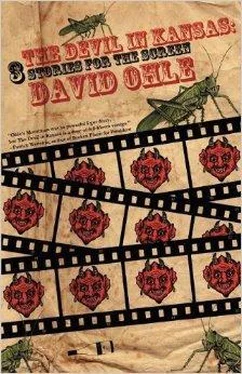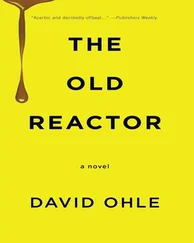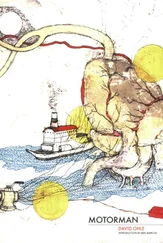On a low, rounded hill above the herd, Dewey’s big rifle is held steady by a Y-shaped stick stuck in the hard sod. Grasshoppers crawl over his body and along the barrel of his rifle. Taking a plug of tobacco from his pocket, he bites off a chunk and looks at the herd below through a telescope. He folds the scope, yanks his “Y” stick out of the ground, mounts his horse and rides down the hill.
As he nears the dead buffalo, the horse loses its footing in a prairie dog hole and falls, propelling Dewey into the air. His rifle fires and a bullet rips through the leather of his boot, severing his Achilles tendon. He falls to the ground hard, knocking himself unconscious.
A prospector’s claim in the Colorado Rockies, 1875. A cobbled-together cabin sits near a swift mountain stream in a small, hidden valley. Smoke billows from its rusted metal chimney. A mule feeds on lush grass at the stream’s edge. Accompanied by raucous calls of feuding magpies, the sound of a shovel blade digging into gravel echoes against the high bluff overlooking the valley.
With a British accent, a rawboned prospector sings as he works: “Then if beneath the evening star…beside the great Pacific’s wave… thou find’st an early tomb afar…his grace will there thy spirit save.”
Atop the cliff, a slightly older, dirtier and more grizzled Dewey leans on his Sharps. His hide jacket and wide-brimmed hat show the wear of several years. He takes a few awkward steps toward the edge of the cliff. His right foot dangles, so every step is carefully taken and measured. He’s watching the prospector shovel sand and gravel from the streambed and dump it into one end of a twelve-foot-long wooden sluice known among gold panners as a “long tom.” Stream water rushes down the sluice, washing sand and gravel through an up-tilted, perforated iron sheet called a “riddle,” which filters out the gold.
Dewey lies on his stomach and pulls himself to the edge of the cliff for a better view. Below, the prospector harvests several small gold nuggets from the riddle, along with an abundance of gold flakes, then a much larger nugget. He picks up the prize nugget, examines it, bites it, rubs it, holds it up to the sun. “God’s blood!” He drops the big nugget into a pouch that is already nearly full of smaller nuggets, packs it in for the day, and plods toward the cabin singing: “Oh Susanna, don’t you cry for me. I’m bound for Coloradee with my washbowl on my knee.”
Having seen all this, Dewey slides a shell into his buffalo gun and makes his way stealthily down the side of the bluff, until he kicks a rock and starts a small landslide. As the prospector opens the door to the cabin, he hears the tumbling rocks. Stepping toward the stream he shades his eyes from the sun and looks up and down the side of the bluff. Dewey has curled into a ball behind a stump and can’t be seen from below. Shortly the last few falling rocks settle. Only a bit of dust remains.
Satisfied that the rock-fall was a natural event, the prospector’s attention focuses on a hawk spiraling toward the top of the cliff. It disappears for a moment, then flies off with a plump copperhead in its talons. The snake struggles to free itself and succeeds, dropping inches from the prospector’s foot. The frightened mule hee-haws and kicks the air. The prospector back-paces slowly from the snake, retreats to the cabin, enters, slams the door to an interior sparsely furnished with table, chair, bunk, wood stove, and a drawing of Queen Victoria on the wall. He bolts the door, takes a cautious peek out the window, has a swig of whiskey from a jug and sits at the table. On it is a balance scale, tweezers, a two-barreled Derringer, a bottle of nitric acid, a small anvil and hammer, a bottle of lye, a can of baking soda, a tin of oysters, and a jug of whiskey. He opens his pouch, removes the largest nugget, places it on the anvil and hammers it gently. The nugget flattens as he hammers it, causing him to smile. He places the slightly flattened nugget in a small saucer and pours nitric acid on it. The acid bathes the nugget but shows no reaction with it. “Absolutely pure,” the prospector whispers to himself. “No reaction at all.”
He pours the day’s take of dust, flakes, and smaller nuggets onto the balance scale and weighs it.
Dewey creeps through twilight shadows to the cabin. He peeks into the window and sees the gold glimmering in the candle’s light. His parched lips break into a gold-toothed smile. He raises his rifle and takes aim at the door.
Inside, the Sharps’ deafening boom and the explosion of the lock sends the prospector leaping from his chair. He backs into a wall, too far from the Derringer to defend himself.
Dewey swaggers in, slides another shell into the rifle, and sweeps the Derringer from the table with the barrel. “Hold it right there, you limey son of a bitch. So much as twitch and you’re a dead man.” He reaches for the pouch of gold. The desperate prospector lunges to the table, grabs the bottle of acid, flings the contents at Dewey. With quick reflexes, Dewey removes his hat and holds it in front of his face. The hat catches most of the splash. A few drops land on the front of his buffalo hide coat. He fires a shot that leaves a gaping hole in the prospector’s chest and in the wall of the cabin behind him. Dewey backs out of the cabin with the gold, foot flapping, his hat and jacket with smoldering acid burns.
A stormy night, heavy rain falling in sheets. When lightning strikes, the Binder place is illuminated: a house, barn, other outbuildings, a small family cemetery and the Binder Store, a sagging wooden structure with a rusty tin roof. Nearby, a grim-looking apple orchard, most of its trees dying or dead, buzzards roosting in their branches.
A hand-scrawled sign is nailed to the front of the store: Grokeries . Below that, another reads: MISS KATIE BINDER * POWER to HEAL ALL ADDICTIONS * Heiron — Opium — Tebaco — Alcahol *
A heavily laden six-mule wagon pulls up to the store, its canvas-covered load top-heavy and leaning precariously. Two men sit in the wagon: Howard Dewey and a man called Cousin, the driver. Dewey wears his acid burned hat and jacket, clutches a tattered satchel in his lap, his Sharps standing within easy reach. One of his boots has been fitted with leather strands running from the toe box to the top of the shaft, serving to keep his foot from flapping. His pants are tucked into that boot but not the other.
Cousin wears a wide-brimmed, black mule skin hat and mule skin boots. He is a rough-hewn, randy sort, the original “teamster” type, armed with a holstered six-shooter and a single-shot Winchester rifle. He says, “Mr. Dewey, you ain’t spoke three words since we left out of Denver.”
“Ten by my count, Cousin. I remember I said, ‘I don’t like being talked to for no good reason’.”
“Ain’t you even curious what we’re haulin’ back there?”
“Tell me if you want to.”
“Three ton o’ granite. Tombstones, for Kansas City dead folks. Maybe they ain’t dead yet, but they will be.”
“You cain’t argue with that, Cousin. You sure cain’t.”
“That was a long damned ride without nobody to talk to. Only thing you hear is them mules breakin’ wind.”
“It’s jest the way I am. Whole family’s like me. Could be a dozen of us at the dinner table and all you could hear was the rat-tat-tat o’ knives and forks on them ole tin plates.”
“Well, there’s one thing I need to know before we go on in there, Mr. Dewey.”
“What’s that?”
“What kind of a boot is that with them straps?”
“Shot myself in the back of my foot huntin’ buffalo. Had a danglin’ foot. This here keeps it right.”
“Them holes in your hat. How’d you come out o’ that with yer head still on your neck?”
Читать дальше












